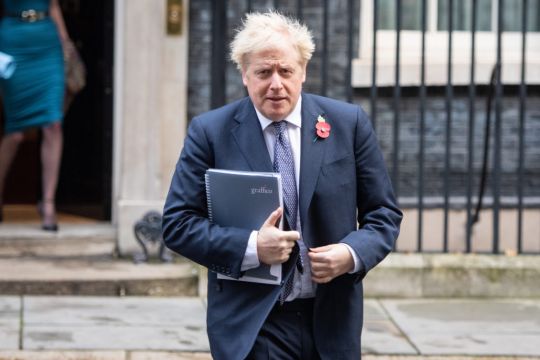UK prime minister Boris Johnson said he remained hopeful that a deal can be reached with the European Union despite concerns about a lack of time.
Post-Brexit trade talks between the UK and EU are not expected to reach an agreement this week, though progress must be made soon if a new deal is to be in place by the end of the year when the current arrangements expire.
The EU’s lead negotiator Michel Barnier has been in London for talks which are set to continue on Thursday.
Mr Johnson said: “There is a deal there to be done and we’re keen to do it but it depends on our friends and partners understanding where we need to get to.
“But either way, we’re going to be ready for whatever the outcome is. This country is full of plans and full of resilience and we’ll have a good way forward.”
Brexit world
Ireland's Foreign Affairs Minister Simon Coveney said he expected talks would continue next week, but neither the UK or EU sides have confirmed this to be true.
One EU source said “next week is a year away in Brexit world” while British officials acknowledged a deal was not expected this week.
The EU wants a deal by mid-November in order for it to be ratified by the time the transition arrangements expire and the UK leaves the customs union and single market.
I think it is quite possible that this could fall apart and we don’t get a deal
Mr Coveney told an online event organised by the European Movement: “I think it is quite possible that this could fall apart and we don’t get a deal, that wouldn’t shock me at all.
“But if you are asking me to call it, I think we are more likely to get a deal than not, but I think it’s unlikely this week – hopefully I’ll be proven wrong – I think it’s likely to move into next week.
“But at that point the timelines start to get very tight.”
Mr Coveney said the coming days were “crucial” and “if we don’t have a deal at some point next week I think we have real problems”.
The main stumbling blocks are thought to remain the “level playing field” measures aimed at preventing unfair competition on issues including state subsidies, the ongoing row over fishing rights and how any UK-EU deal will be governed.
The EU has been in compromise mode at all negotiation tables, for months. https://t.co/kbwRC69nt1
— Stefaan De Rynck (@StefaanDeRynck) November 11, 2020
Stefaan de Rynck, an adviser to Mr Barnier, insisted the EU side had been willing to compromise in the negotiations – implying that it was British resistance which had prevented progress.
“The EU has been in compromise mode at all negotiation tables, for months,” he said.







